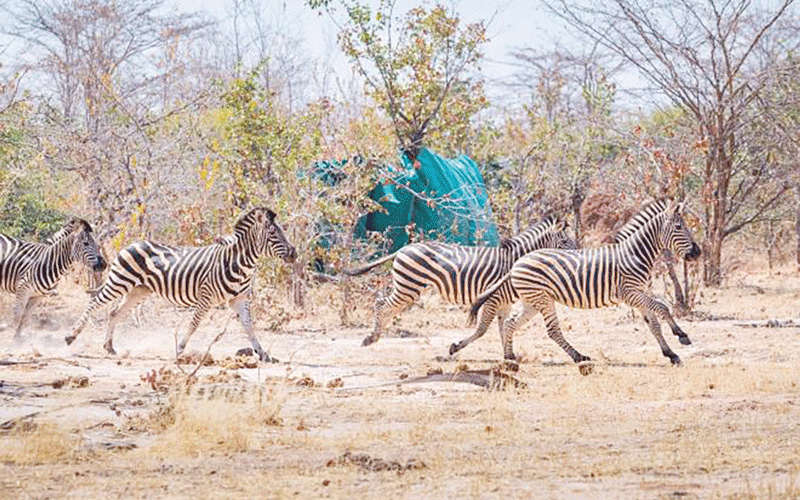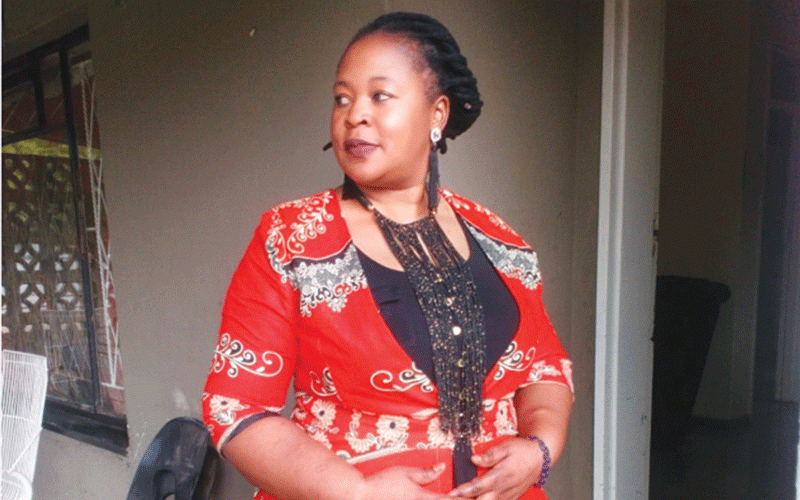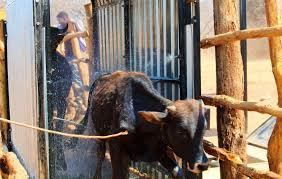
Sometime in November this year, a freak accident during a football match in Chief Mola’s area saw a young boy suffer a horrible injury that needed urgent medical attention.
The main challenge for this area in the deep environs of Nyaminyami in Kariba district was accessibility to the nearest hospital in Kariba town, approximately 100km away.
The alternative, Karoi District Hospital, is further and accessible through a rugged terrain on poor roads.
But Chief Mola’s area, which is adjacent to the Matusadonha National Park, has benefited from a partnership between the Zimbabwe Parks and Wildlife Management Authority (ZimParks) and African Parks.
In December 2019, ZimParks African Parks, a non-profit conservation organisation, created a marriage that is bearing fruit for the communities.
African Parks has assumed the responsibility for the rehabilitation and long-term management of the national park, partnering government and local communities.
Matusadonha National Park covers an area of 1 477 square kilometres and the partnership is expected to boost ZimParks’ goal to enhance wildlife management efforts in the park.
Matusadonha, after being proclaimed a national park in 1975, was originally a stronghold for black rhino and elephants.
- Open letter to President Mnangagwa
- Feature: ‘It’s worse right now than under Mugabe’: Sikhala pays the price of opposition in solitary cell
- Masvingo turns down fire tender deal
- Human-wildlife conflict drive African wild dogs to extinction
Keep Reading
Speaking during a media tour of the Matusadonha National Park recently, Chief Mola applauded the partnership.
“We are living well with these boys. We even send through our requests. We have challenges getting to Kariba for medical requirements and they always assist.
“When one of our children was injured, African Parks transported him to the hospital and so that is living together in harmony,” he said.
The traditional leader said working with the authorities in wildlife management has taught the people to respect natural resources.
“We don’t have a problem with the animals. They are part of us, we came with them from Zambezi. We can’t say this is new. The animals are a part of us, but it’s just that it’s a struggle when we forget to lock up our livestock,” he said.
Lions, which have wreaked havoc in the area, have been successfully repelled.
“When villagers don’t lock up their domestic animals properly, the lions will target them. We have been taught how to protect our domestic animals from the lions,” he said.
Through wildlife management, Chief Mola said, the community had benefited immensely.
“The people from national parks have been helping us. They ferry sick people and even when people die, they also assist us with transport,” he said.
Communities surrounding the park are also working against poaching.
Some of the challenges in the park include illegal fishing in Lake Kariba and poaching of ivory and bush meat.
“We don’t allow poaching here. If we catch you selling meat, we will get you arrested. Yes, some people still do it, but we never let anyone pass through here with game meat. It used to happen a lot before, but not anymore,” Chief Mola said.
“Previously, people did not understand the importance of wildlife management. Even wildlife was meat, but nowadays wildlife is just as important to them.”
In an interview, ZimParks spokesperson Tinashe Farawo said the partnership had helped the authority to enhance wildlife management programmes in Zimbabwe.
“Cases of human and wildlife conflict are being attended to on time because the resources are now readily available. So we have always been saying conservation is a joint effort, we must always try to work together so that we remain a top country in terms of wildlife management.
“And this project is also helping the communities not only in addressing issues of human and wildlife conflict, but they are also addressing challenges of law enforcement in the park,” he said.
Farawo said the partnership has seen a boost the number of wildlife in the park.
“We have put in about 250 zebras and impalas. We were supposed to put in buffalos, but because of foot and mouth, we couldn’t do that,” he said.
“We are going to re-introduce black rhinos, you know very well that southern Africa is well-known for black rhinos, and we are going to do that so that we can boost our numbers.”
Farawo added that ZimParks worked within communities because it’s the people who bear the brunt of sharing the borders with wild animals.
“So as part of our working with the community, we make it a point to also make sure that everyone who is employed here comes from the community.
“In this case, we have more than 80% of people coming from the community. From technicians, general hands including the professionals, we try to make sure that we work with the traditional leaders who can identify talent and make sure that we develop this park,” Farawo said.
He said ZimParks would continue seeking to craft similar partnerships for its wildlife sanctuaries.
African Parks, which is currently managing 19 parks in 11 countries, is protecting 14,2 million hectares of wildlife.
“We also maintain a strong focus on economic development and poverty alleviation in neighbouring communities, ensuring that they benefit from the park’s existence.
“Our goal is to manage 30 parks by 2030, and because of the geographic spread and representation of different ecosystems, this will be the largest and the most ecologically diverse portfolio of parks under management by one organisation across Africa,” African Parks said in a statement.
Since assuming management of Matusadonha in December 2019, developing, maintaining and improving infrastructure has been a top, foundational priority.
“By working with local communities, we have begun to reinforce fishing permit laws. Strengthen fishery ownership and improve the understanding of sustainable fishing practices.”
The partnership is dealing with the human-wildlife conflict through cattle Boma projects to reduce lion attacks, training in chilli brick manufacturing to deter elephants while improving vegetable garden fencing.
It will see efforts to ensure territorial integrity to prevent elephant poaching, reduced gold mining and bush meat poaching.
It also seeks to improve mobility and coverage for effective law enforcement and will develop a black rhino management plan, while growing the tourism product in the park.











